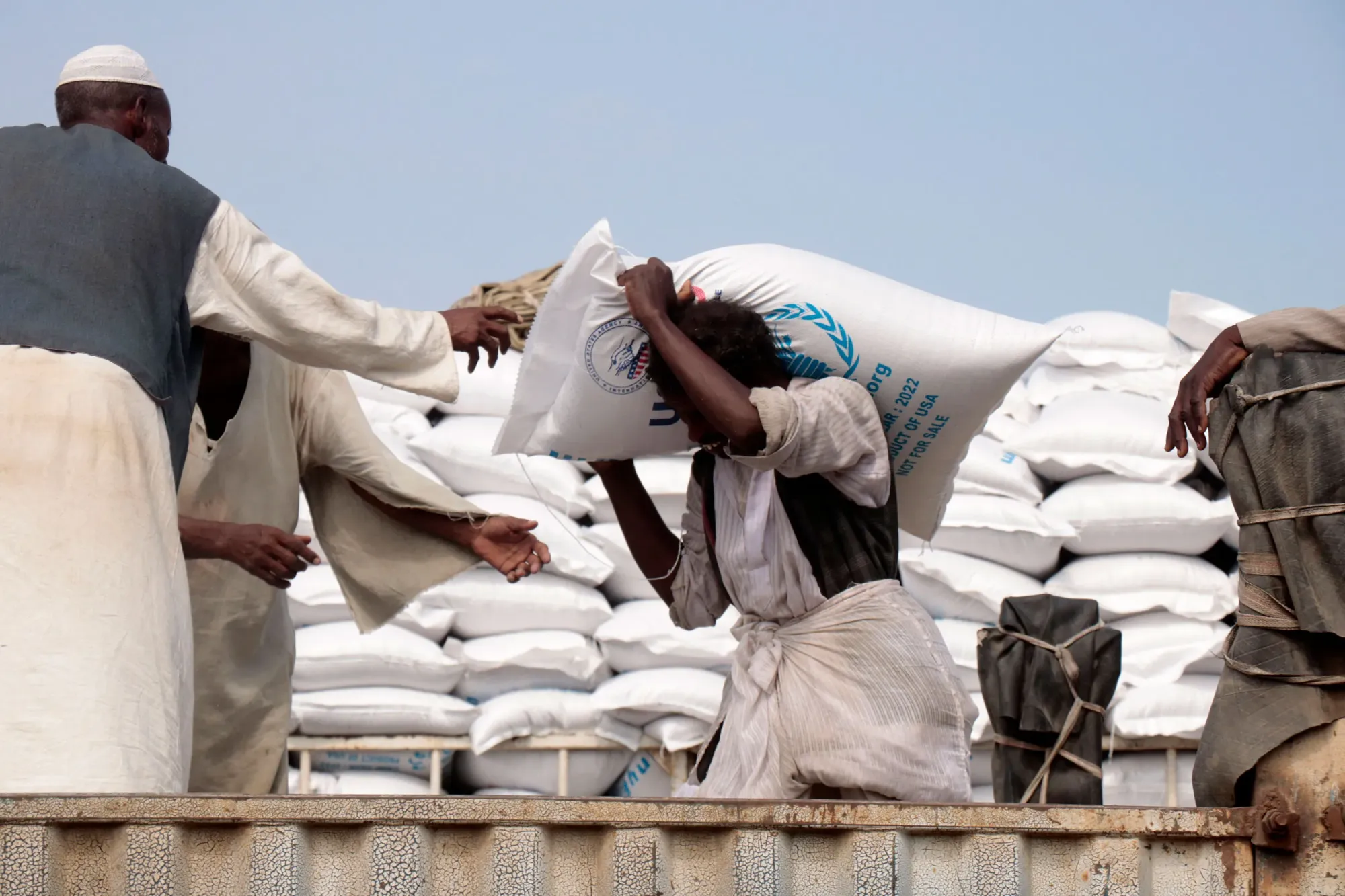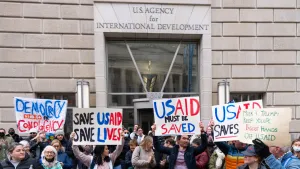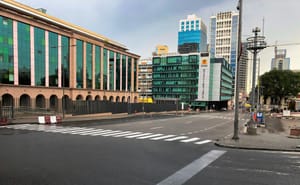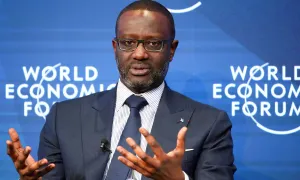Discussions around aid in Africa often miss a crucial point: a clear understanding of what aid truly represents.
It is valid to argue that "aid is not the solution to Africa's developmental crisis." However, it is equally vital to recognise that aid was never designed to serve as that solution. What is more concerning is the assumption that a continent currently navigating an unprecedented confluence of humanitarian and development crises can forgo aid altogether. In reality, aid remains a lifeline, supporting participation, maintaining fragile peace, and shielding the most vulnerable.
The discourse on aid is not new. It has been central to Africa’s long-standing debates on development and self-determination. Over time, three dominant narratives have shaped this conversation, each reflecting a different chapter in the continent’s post-colonial journey.
The first, popular among Pan-African thinkers and critical academics, views aid as a modern instrument of imperialism. From this lens, aid continues colonial legacies functioning as a lever for global capitalist interests and foreign dominance. This critique sees NGOs, donor-backed governments, and international organisations as complicit actors in a neocolonial system. Historically, this perspective is grounded in the fact that most aid flows from former colonial powers and wealthy capitalist states.
The second argument frames aid as a political instrument of the global order—a mechanism for redress and soft power. It suggests that aid is not simply benevolent support but part of a broader, negotiated obligation shaped by diplomacy and historical accountability. In this view, aid reflects a transactional relationship between the Global North and South, often tied to strategic alliances and political interests.
A third and increasingly mainstream position, heavily influenced by neoliberal thought, critiques aid as counterproductive. It suggests that aid fosters dependency, suppresses local agency, and sustains bad governance. Dambisa Moyo’s Dead Aid remains a flagship text for this school of thought, which contends that aid not only fails to solve problems but may exacerbate them.
Recently, a new critique has emerged from within the development sector itself. This internal reckoning focuses on the colonial hierarchies embedded in aid institutions and calls for structural reform—what some now term "localisation." Though initially rooted in radical analysis, the localisation movement has entered mainstream discourse, often diluted in practice. Yet unlike traditional critics, these voices come from within—aid workers, civil society actors, and policy professionals—who demand an equitable, bottom-up transformation of the aid system.

Rather than retreading old arguments, the current conversation has been reinvigorated by recent developments such as former U.S. President Donald Trump’s abrupt halt to USAID projects. These moves triggered fresh scrutiny, distinct from earlier ideological rejections of aid or simplistic blame games.
Frustration with Africa’s stagnating progress is understandable, but the resurgence of anti-aid narratives often lacks complexity. Many dismissals of aid today ignore its diverse functions or reduce it to outdated grievances and populist rhetoric. The danger lies in choosing ideological purity over practical reality, especially as lives remain at stake.
Much of the confusion stems from misrepresenting aid. Aid is not—and was never intended to be—a comprehensive development strategy. It cannot substitute for robust government investment, economic growth, or effective tax systems. Nor should it be conflated with foreign direct investment or market-based capital flows. Recognising these distinctions is critical for framing a realistic conversation about development.
What aid does offer, when well-implemented, is catalytic relief. It enables communities to meet urgent needs, avert disaster, and survive with dignity. It helps lay the groundwork for resilience and longer-term stability. Aid is deeply political, shaped by foreign policy, economic interests, and global diplomacy. It is negotiated, not gifted, and reflects strategic calculations by donor states.
Acknowledging that aid cannot resolve Africa’s structural challenges does not mean it is irrelevant. Africa remains the world’s poorest continent, with over 800 million people living in poverty and plagued by protracted crises—from conflict in the Congo, Sudan, and Somalia to climate shocks in the Sahel and Horn of Africa. These emergencies fuel displacement, deepen food insecurity, disrupt education, and push many into perilous migration.
While Africa has made modest progress on the Millennium Development Goals (MDGs) and now pursues the Sustainable Development Goals (SDGs), the outcomes remain underwhelming. Unlike Asian peers such as China and India, who have lifted millions out of poverty, Africa’s growth has not translated into improved quality of life. High unemployment, inequality, and disease persist beneath headline economic figures. The continent still records the highest global rates of child malnutrition, maternal mortality, school dropouts, and HIV/AIDS.
These entrenched challenges coincide with global economic expansion elsewhere, widening the gap and reinforcing inequality. It is tempting—and historically accurate—to attribute some of Africa’s woes to an unjust global order. However, structural analysis must not paralyse urgent action. The time for lamentation has passed. Decisive, coordinated responses are needed now. Yet many African states lack the resources—or the political will—to lead these efforts effectively.
Some critics argue that Africa’s deepest failure is its inability to assume full ownership of its development. While this may hold true, the urgency of the present crises makes it clear that abandoning aid altogether is not a viable option.
In its best form, aid sustains civic engagement, fosters peace-building, and supports governance initiatives. It can protect human rights and amplify accountability—functions that are vital in fragile democracies. As Africa continues to evolve, aid must not be romanticised or vilified, but properly understood.
Recent aid reductions across the U.S. and Europe are therefore alarming. These nations have made long-standing commitments—through bilateral treaties and multilateral frameworks—that should not be casually abandoned. Aid is not optional charity. It reflects intergovernmental responsibility, embedded in historical, legal, and political ties.
Supporting aid is not a betrayal of self-reliance. It is a recognition that empowerment starts with survival. Millions of Africans cannot begin to shape their futures without first meeting their basic needs.
Of particular concern is the celebratory stance some African leaders have taken in response to aid withdrawals. Rather than treat this as a governance challenge requiring innovation and responsibility, they use it to justify shrinking civic space and consolidating power. Their enthusiasm often masks authoritarian motives, not developmental alternatives.
Still, this juncture presents an opportunity. Africa can reimagine an aid framework that is accountable, inclusive, and responsive to local priorities. Donors must not dominate, but African governments must also lead with vision and responsibility. While some states have begun to plug funding gaps, these efforts are often ad hoc and lack strategic depth.
This may be the moment for Africa’s political class to reflect on peace, humility, and collective progress. It is time to break the cycles of war, displacement, and environmental neglect that perpetuate the need for emergency aid.
In the end, it is economic development, not aid that must shape Africa’s future. But development takes time. For the millions still living in crisis, time has already run out. Aid and development are not rivals. They are parallel tracks on the same journey. Both are needed—now more than ever.




